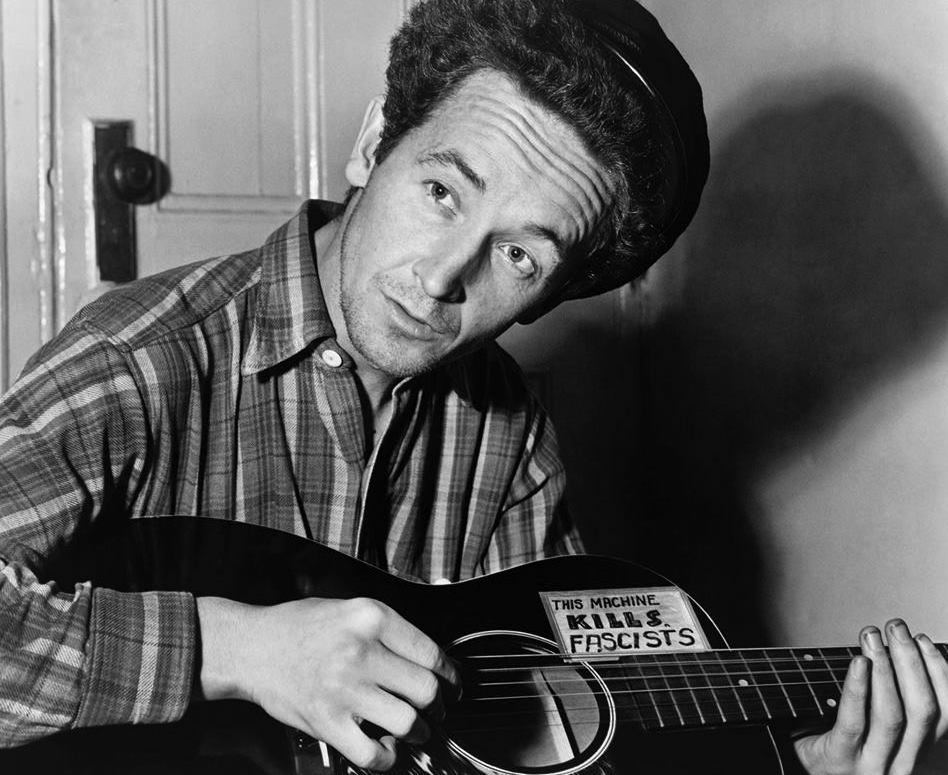Think of the different reasons there are to get excited about new music. A beloved artist could be returning from an extended hiatus, two artists might announce an unprecedented and promising collaboration, or well-established acts might start experimenting with new sounds. It also seems reasonable to be looking forward to new releases because of the environment they are produced in. For example, many were excited for the post-incarceration comeback of rapper Gucci Mane. After all, it makes sense to anticipate the music of a celebrated rapper emerging from prison as a changed person who has largely turned his life around. But should we have the same kind of excitement if the music is emerging from a place of negativity, or a tragedy in someone’s life? If my favourite songwriter has become a depressive drunk, should I cite Ernest Hemingway as a reason to be excited for his upcoming music?
Shouldn’t our reaction to injustice in the world be to actually protest it, rather than giddily await the music about protesting?
This kind of sentiment has been surprisingly common among music commentators the past few months as they anticipate the protest music that will accompany Trump’s presidency. We are currently living in a time where protest and civil unrest are colouring political narratives in more than just one particular country, so it’s not shocking to expect people involved in the arts to vocally oppose fascism and bigotry in their music. Nor is it a secret that some of the greatest milestones in the history of pop music have been political in nature. From “This Land is Our Land,” to “God Save the Queen,” to “Fuck tha Police,” there is no shortage of examples. But I think the music critics that have voiced this strange anticipation of new protest music are not only distasteful, but have made an inaccurate prediction to begin with.
There’s some kind of odd voyeurism involved in these predictions. Shouldn’t our reaction to injustice in the world be to actually protest it, rather than giddily await the music about protesting? Surely the two are not mutually exclusive, but I still think there’s a celebratory sentiment attached to the anticipation of new music, and it is in poor taste to link this sentiment to tragedy and injustice. That is, though there’s nothing wrong with enjoying these songs once they’ve been released, it feels inappropriate to measure real-world injustices against the kinds of entertaining reactions they produce in music. If a protest song resonates with you because of the interest you have in social justice, then all the better. But keep in mind that these songs exist to help overcome and raise awareness about the issues they discuss, not to celebrate them.
In addition to this concern about distastefulness, can we really say that our particular political era is going to jump-start a new age of music in the first place? Is punk rock really going to be revived as a response to the increased presence of the radical right? I doubt it for a few reasons.
These songs exist to help overcome and raise awareness about the issues they discuss, not to celebrate them.
For one, as far as many artists are concerned, the kind of injustices at issue today were still topics of concern before people started to anticipate them in pop-culture blogs or before the US election. Some of the most iconic social commentaries in contemporary music were made over the past eight years, and it didn’t really matter who was president of the United States. There’s no special ‘extra baggage’ brought on by the injustices of 2017 that will allow artists to suddenly write better protest music.
Secondly, the artists that put out albums of socio-political significance weren’t able to produce these masterpieces just because they happened to be in a particular social context; they also happened to be fantastically talented musicians. Kendrick Lamar’s To Pimp a Butterfly is the paradigmatic example of this point. The album isn’t lauded exclusively for its cultural relevance or because some of its singles have even been chanted at Black Lives Matter rallies. If the album didn’t push the musical boundaries of mainstream hip-hop, I doubt that it would have been the same pop music explosion that it was.
Though there’s nothing wrong with enjoying these songs once they’ve been released, it feels inappropriate to measure real-world injustices against the kinds of entertaining reactions they produce in music.
Consider the politically-tinged songs that have already come out in response to the Trump presidency. Though there have been some gems, we can’t expect every new release to be another cultural milestone just because it is critical of Trump. For example, Arcade Fire’s new song “I Give You Power” not only had lyrics quite obviously referencing Trump as a threat to democracy, but the proceeds from the song’s purchase and streaming were donated to the ACLU. This is undoubtedly a noble cause, but is this song particularly good because of its political content or the context it’s released in? Not really. In fact, “I Give You Power” is pretty bland and repetitive, and hardly something to remember the Montreal indie-rockers by. As it turns out, part of making a memorable, politically-charged song actually involves writing a good song, not just uttering platitudes in protest of Trump. What’s ironic, moreover, is that two of the band’s most famous songs, “Wake Up” and “Rebellion (Lies),” were reminiscent of protest music, but they were released in 2004; far before anyone had even entertained the notion of a Trump presidency.
All in all, you can expect there to be great protest music in the future just as much as you can expect there to be great songwriters. Nothing is about to drastically change with protest music because there already is great protest music. Trump provides a wealth of subject matter for politically engaged artists, but as far as protest music about the new president is concerned, no one is going to top YG’s “FDT”, regardless.


